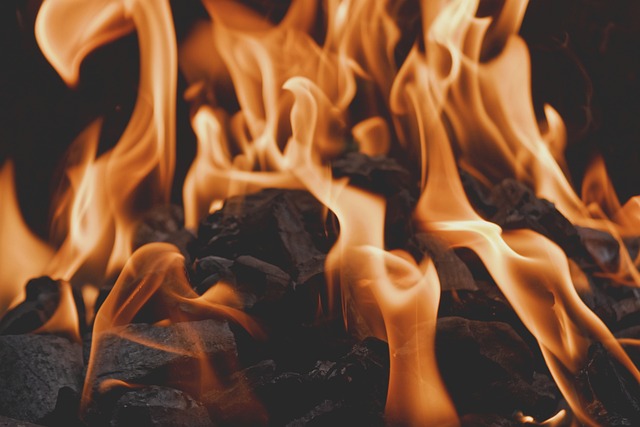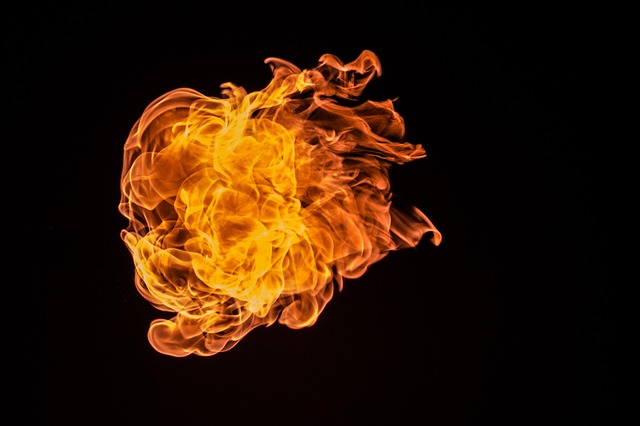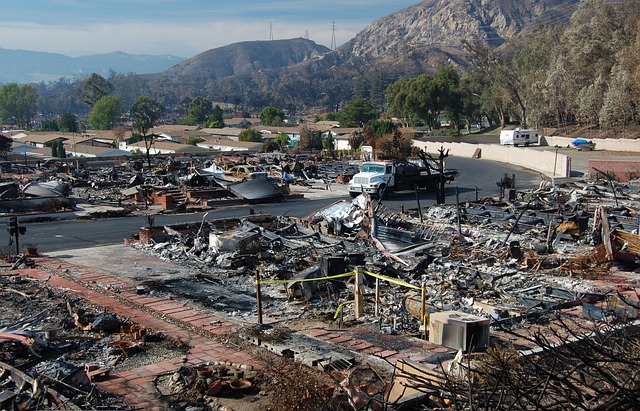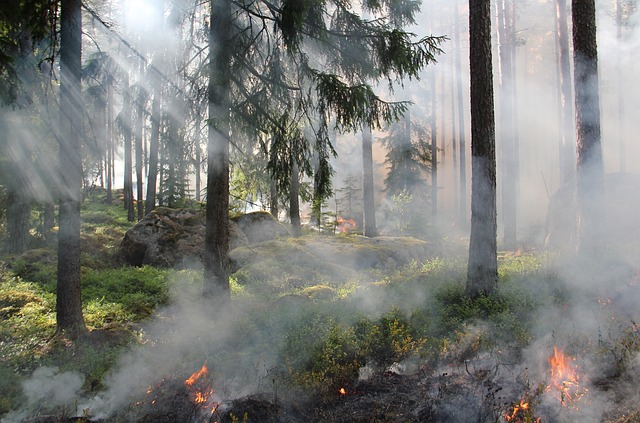Selling a house with fire damage in California involves a meticulous post-fire property valuation process. Appraisers must document extensive repairs, compare similar sales, and evaluate market values before and after the incident to determine a fair current value. Transparency, thorough documentation, and communication with buyers are crucial. The extent of damage, structural integrity, location, market conditions, and insurance settlements all significantly impact the property's value. Homeowners should hire professionals, address structural issues, clean up damage, and stage the property to attract offers in California's competitive market.
After a devastating fire, reassessing your property’s value is a crucial step. This article guides you through the complex process of post-fire property valuation in California, from understanding the unique challenges to navigating insurance claims and revaluing your home. We explore the impact of fire damage on property value, essential preparation steps, influencing factors, and valuable tips for selling a house with fire damage in the Golden State.
- Understanding Post-Fire Property Valuation in California
- The Impact of Fire Damage on Home Value
- Steps to Prepare Your House for Valuation After a Fire
- Factors Influencing Post-Fire Property Appraisals
- Navigating Insurance Claims and Property Revaluation
- Tips for Selling a House with Fire Damage in California
Understanding Post-Fire Property Valuation in California

In California, post-fire property valuation for homes suffering from fire damage is a critical process that requires meticulous attention to detail and adherence to strict guidelines. When selling a house with fire damage in California, it’s essential to understand that appraisers will carefully assess the extent of the damage, considering both structural integrity and potential safety hazards. They will document every aspect of the property, including visible repairs needed, and compare similar properties in the area that have recently sold.
This process involves a comprehensive evaluation of the costs associated with repairs and rebuilding efforts. The appraiser will consider market values before and after the fire to determine a fair estimate for the current market value of the damaged property. It’s crucial for homeowners to be transparent about all damage, as concealing or underestimating repairs can lead to issues during the sales process. Therefore, thorough documentation and communication with potential buyers are key when navigating the selling a house with fire damage California landscape.
The Impact of Fire Damage on Home Value
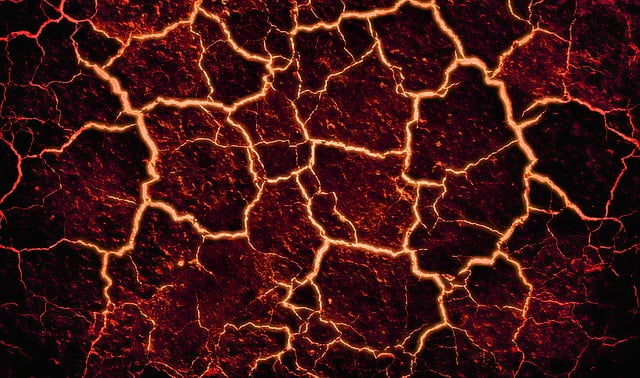
Fire damage can significantly impact the value of a property, especially in highly competitive real estate markets like California. The extent of the damage plays a crucial role in determining the future worth of a home. Minor fires that result in limited smoke and water damage may not severely affect the overall value, but they do require proper repairs to restore the property to its pre-fire condition.
In cases where fires are more severe, causing extensive structural damage or blackening walls and ceilings, the impact on the property’s value can be substantial. Insurance claims might cover the rebuilding costs, but the actual market value of the house could decrease due to the physical changes needed to make it habitable again. Selling a house with fire damage in California requires transparency about the incident and an accurate assessment of the necessary repairs to ensure a smooth transaction.
Steps to Prepare Your House for Valuation After a Fire
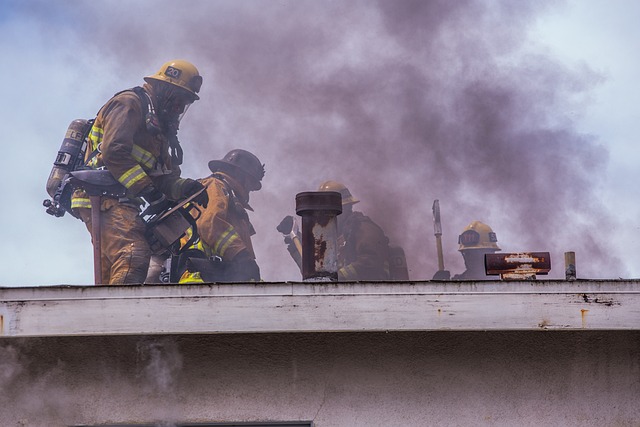
After a fire, preparing your home for valuation is a crucial step in the process of selling or insuring your property in California. The first steps involve ensuring safety by clearing any hazardous materials and securing the structure to prevent further damage. This may include boarding up broken windows, repairing roofs, and addressing structural instability.
Next, document all fire damage thoroughly. Take photos and videos of affected areas, noting the extent of the damage. Keep detailed records of repairs already completed or planned, as these will be essential for your insurance claims and future negotiations with potential buyers who are buying a house with fire damage in California.
Factors Influencing Post-Fire Property Appraisals

When conducting post-fire property appraisals in California, several critical factors come into play. The extent and type of fire damage are primary considerations. Assessors examine the structural integrity of the house, assessing whether the damage is superficial or if it impacts the building’s load-bearing components. Fire can leave behind hazardous materials like asbestos or lead, which can complicate the process and affect the property’s value. The location of the property also matters; areas prone to wildfires may have lower post-fire values due to increased risk.
The age and condition of the house before the fire are significant factors as well. Older homes with outdated wiring or plumbing might face greater repair costs. The overall market conditions in the area, including recent sales data, help determine the property’s current value. Insurance settlements also play a role; the amount received can influence what a buyer is willing to pay, impacting the final appraisal. In California, where selling a house with fire damage is common, appraisers must consider these intricate factors to provide an accurate assessment.
Navigating Insurance Claims and Property Revaluation

After a fire, homeowners in California often face complex processes when selling their damaged properties. Navigating insurance claims and property revaluation is crucial during this challenging time. The first step involves thoroughly documenting the fire damage, including taking photos and creating an inventory of destroyed or salvageable items. This process not only helps with insurance claims but also provides a clear picture of the property’s current state for potential buyers.
Insured homeowners should promptly file their insurance claims, ensuring they meet deadlines set by their policies. It’s essential to keep records of all communications and documentation related to the claim. Simultaneously, engaging a professional appraiser can assist in determining the accurate post-fire value of the property. This step is particularly vital when selling a house with fire damage to ensure a fair transaction for both the seller and buyer.
Tips for Selling a House with Fire Damage in California
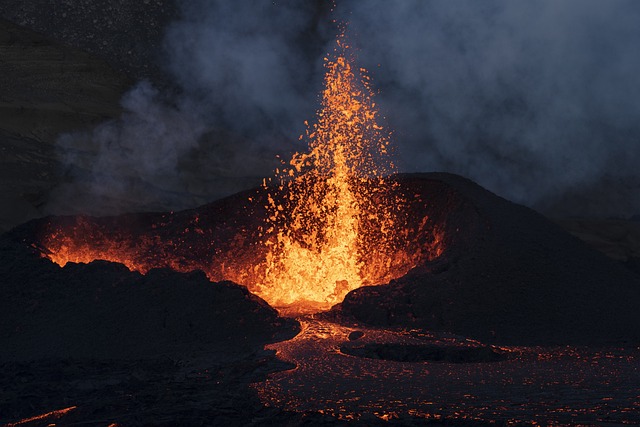
Selling a house with fire damage in California can be challenging, but with the right approach, it’s entirely possible to secure a fair sale quickly. First, engage a professional property inspector to assess the extent of the damage. This step is crucial as it provides an accurate picture of repairs needed and aids in setting realistic expectations for potential buyers. Many insurance policies cover restoration costs, so review your policy terms to understand your financial obligations and what’s covered.
Next, focus on thorough cleanup and repairs. Remove any visible signs of smoke or water damage and address structural issues promptly. A fresh coat of paint and new fixtures can significantly enhance the property’s appeal. Additionally, consider staging the home to showcase its best features, making it more attractive to buyers. In California’s competitive market, a well-presented house with transparent communication about its history can attract serious offers despite the fire damage.
Post-fire property valuation in California involves a complex interplay of factors, from insurance claims to market dynamics. Understanding these elements is crucial for homeowners navigating the process of selling a house with fire damage in California. By preparing your property thoroughly and being aware of appraisal influences, you can ensure a smoother transition. Remember that, while fire damage may present challenges, it doesn’t necessarily depreciate property value; skilled professionals can guide you through revaluation, helping you secure fair compensation for your home in the post-fire landscape.
